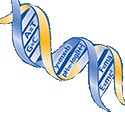Glossary of Terminologies
State Required Examinations
- California Basic Educational Skills Test (CBEST): is designed to test basic reading, mathematics, and writing skills found to be important for the job of an educator; the test is not designed to measure the ability to teach those skills. Students are recommended to take this exam as early as sophomore year.
- California Subject Examinations for Teachers (CSET): is a series of subject matter examinations. The CSET reflect the recently revised K-12 California Academic Content Standards. If the institution offers a California Commission on Teacher Credentialing (CCTC) approved Subject Matter Preparation (SMPP) in the core area, one may demonstrate subject matter proficiency by completing the SMPP.
- Subject Matter Preparation Program (SMPP): is CCTC approved programs to satisfy subject matter proficiency. Completing SMPP is equivalent to passage of appropriate CSET Exam.
Tiers of Basic Teaching Credentials
- Preliminary Credential: Earned through a university or district program. All district programs are intern programs, but university programs may be student teacher or intern programs.
- Professional Credential: Earned after the preliminary credential through a two year district induction program.
- Specialist Credential: Offered in a variety of areas such as Mild/Moderate, Moderate/Severe, Visually Impaired, etc.
Teaching Program Options
- Student Teaching: Student teach under the guidance of a district cooperating teacher, gradually assuming full-time teaching responsibility for a classroom.
- Intern Teaching Program: This option is for candidates who have had extensive teaching experiences either as an instructional assistant, substitute, or emergency teacher in a classroom setting. Interns assume full-time teaching responsibilities in a general education class and are paid at salaries set by the employing district. Intern candidates are responsible for obtaining their own teaching position with a participating district
- Integrated Teaching Program: This is a program for early deciders (freshmen/sophomores) planning to become teachers. Advising for the Integrated Teaching Program is a collaborative effort between CaTEACH-SMI and UCR Graduate School of Education. The Integrated Teaching Program is a "fast track" to classroom teaching. Currently UCR offers a Integrated Teaching Program in mathematics and science.
Types of Teaching Credentials
- Multiple-Subjects Teaching Credential: allows the holder to teach K-6 or K-8 schools. Holder of this type of credential is authorized to teach all core subjects in a multiple subject classroom.
- Single-Subject Teaching Credential: allows the holder to teach middle or high schools and are authorized to teach only the subject for which the holder has a credential.
Other Frequently Used Terminologies
- Highly Qualified Teacher Requirements: California's State Board of Education defines a "highly qualified teacher" as one who has a Bachelor's Degree and has verified subject matter through the appropriate CSET or has completed a Subject Matter Preparation Program in the credential area.
- No Child Left Behind Act of 2001: This is a United States federal law that reauthorizes a number of federal programs that aim to improve the performance of America's primary and secondary schools by increasing the standards of accountability for states, school districts, and schools.

